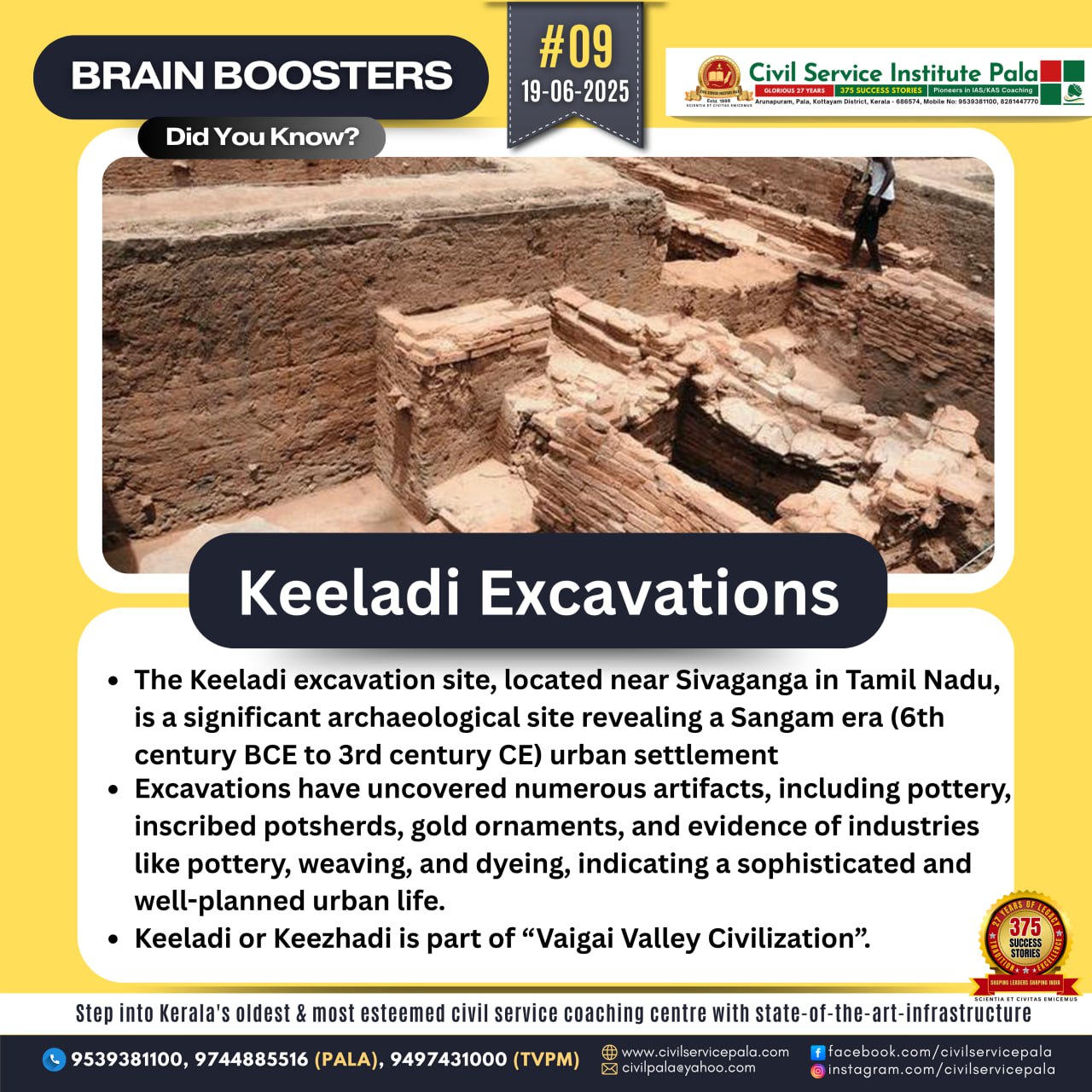
Keeladi excavations
The Keeladi excavations are a major archaeological discovery in Tamil Nadu, India, that have reshaped our understanding of ancient South Indian civilization. Located near Sivaganga district, these excavations began in 2015 and have uncovered the remains of a sophisticated urban settlement along the Vaigai River.
Key Findings:
Urban Planning: Excavators found well-planned brick structures, drainage systems, and water management setups, suggesting an advanced urban culture around 6th century BCE to 1st century CE.
Artifacts: Items such as pottery, beads, iron tools, and spindle whorls point to a literate, craft-based society engaged in trade and textile production.
Tamil-Brahmi Inscriptions: Pottery with Tamil-Brahmi script proves the use of written Tamil more than 2,000 years ago.
Cultural Continuity: Links to the Sangam age (ancient Tamil literary period) suggest Keeladi may have been part of the same cultural and economic system.
Significance:
Challenges the earlier notion that advanced civilization in India was limited to the Indus Valley in the north.
Suggests the Tamil region had an indigenous urban culture that evolved independently, with early literacy and trade links.
Strengthens the case for South India’s historical and cultural richness, especially in the pre-Sangam and Sangam periods.
Keeladi is often described as a “game-changer” in Indian archaeology, shifting attention to the ancient urban legacy of South India. Source: https://www.thehindu.com/news/national/tamil-nadu/keezhadi-excavation-report-of-archaeologist-amarnath-ramakrishna-why-are-centre-and-tn-government-at-loggerheads/article69708000.ece



